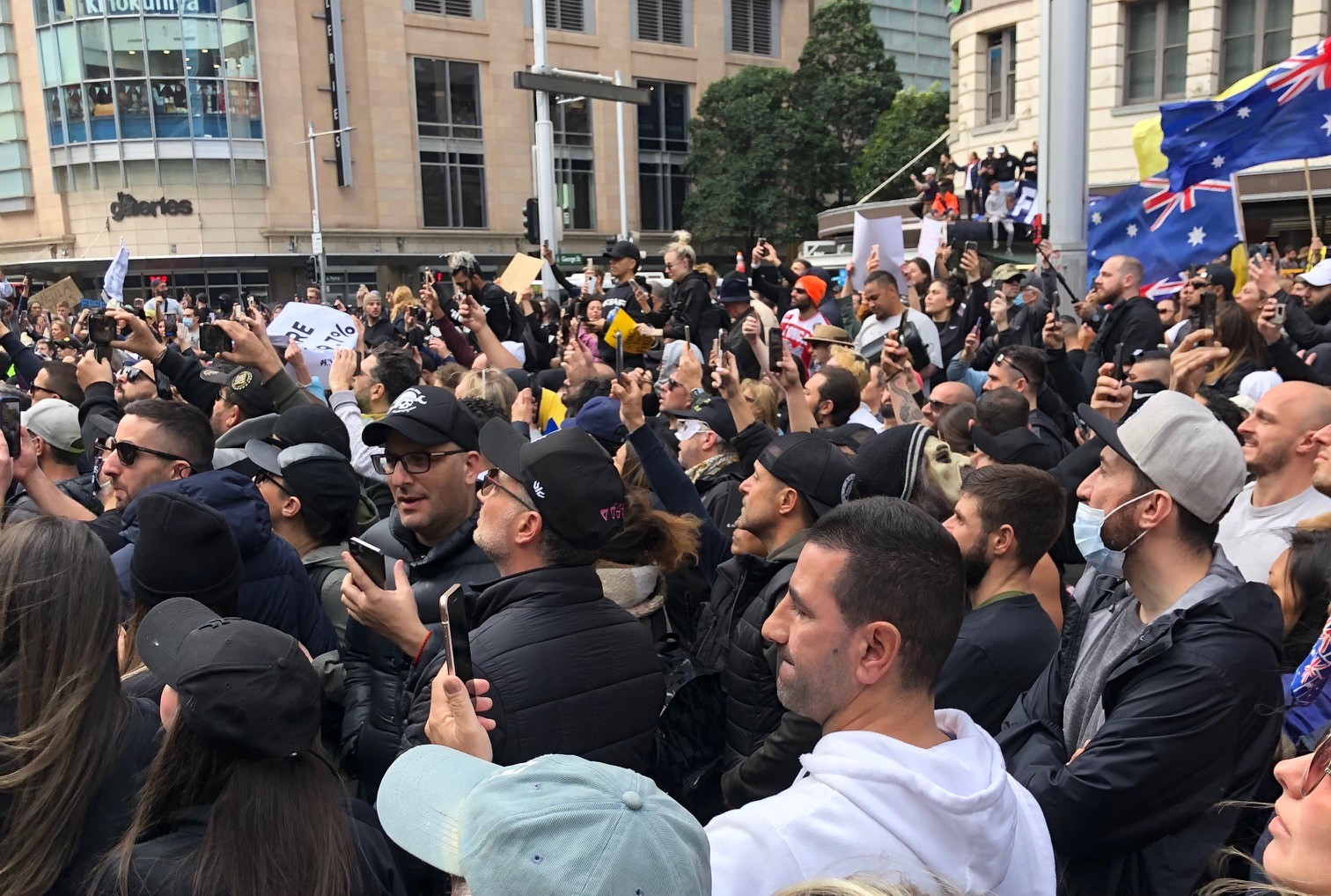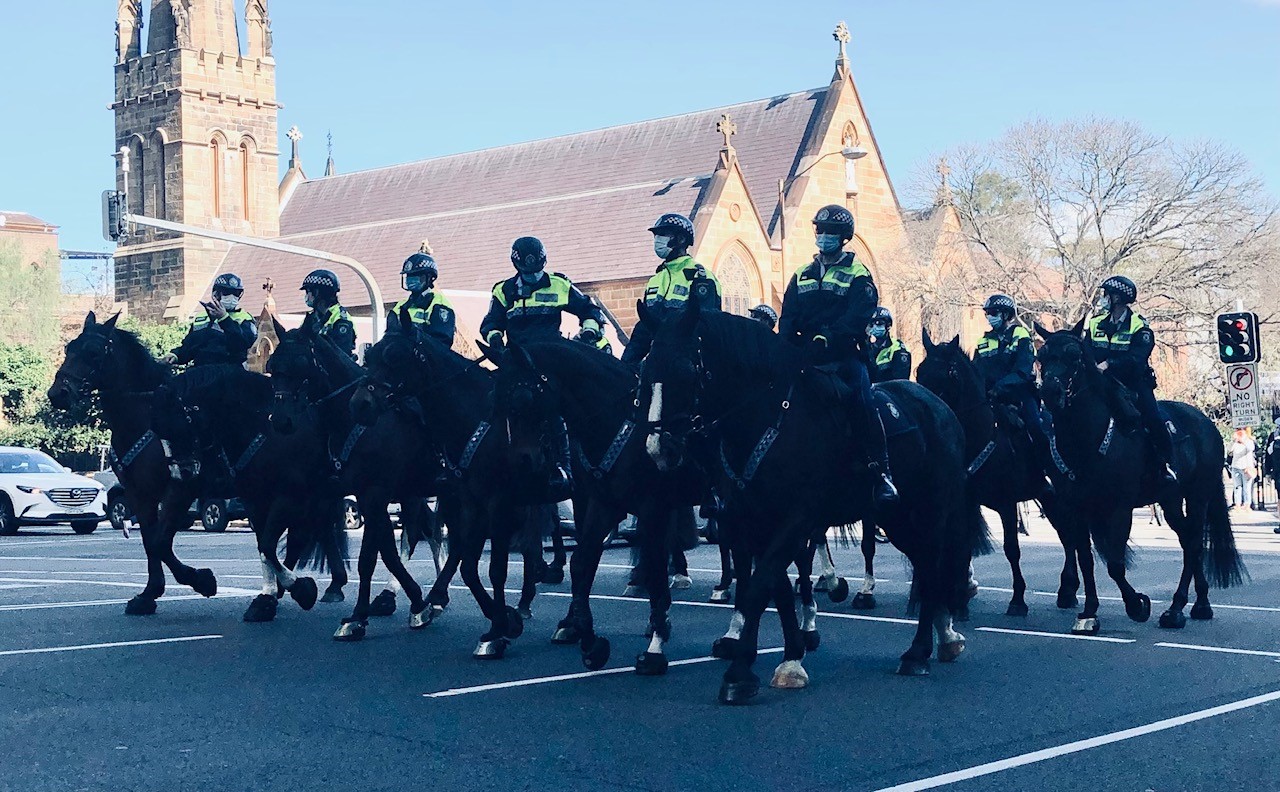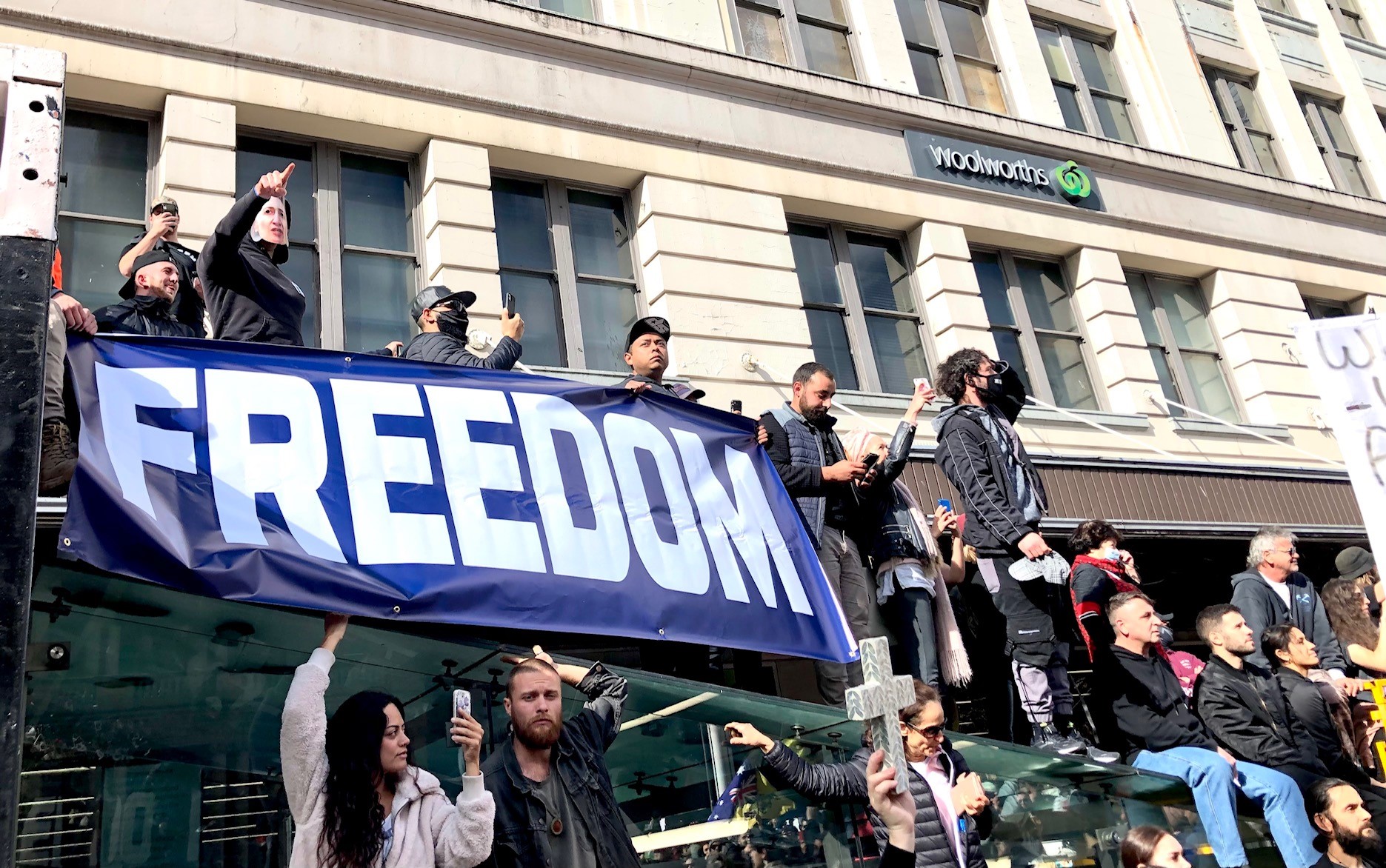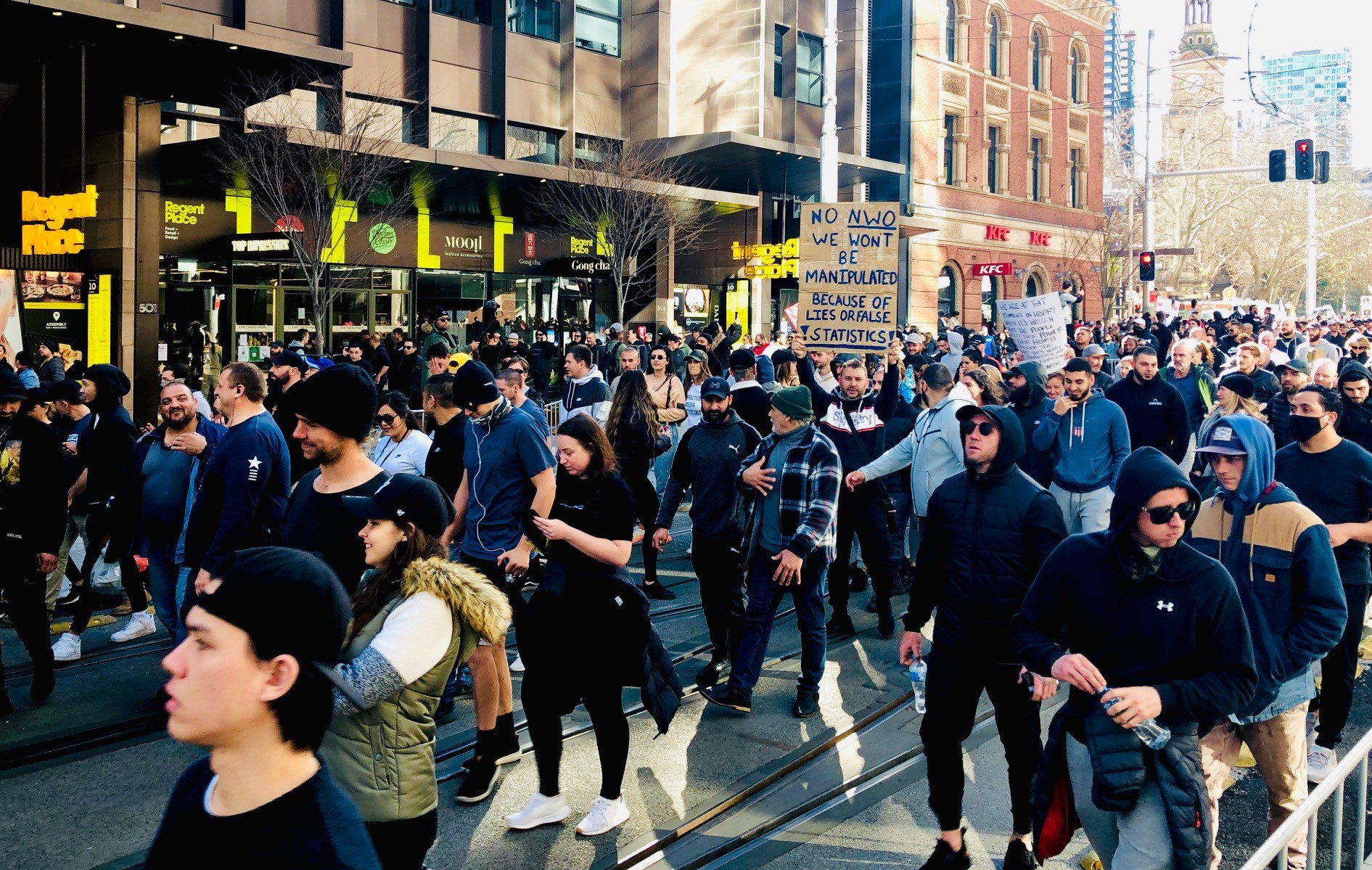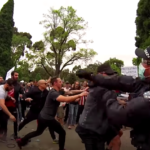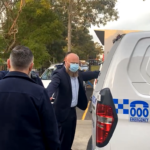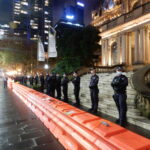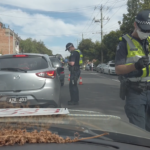Police Establish Task Force to Track Down Protesters
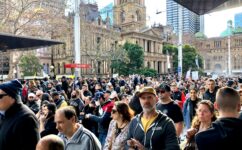
The response to yesterday’s protests in the Sydney CBD against COVID lockdowns has been fierce.
A total of fifty seven people were arrested and charged with offences including failing to comply with a public health order and knowingly joining an unlawful assembly, and around 500 issued with penalty notices, with the New South Wales Police Force now establishing a task force to track down and prosecute others who attended the event.
Twenty two people were refused police bail and appeared in Parramatta Bail Court today.
Informing on protesters
It has been reported that scores of people have been advising police of the identities of those naming they allegedly recognise in uploaded video footage, and police say they are ‘forensically investigating’ their own footage, as well as CCTV footage from the area and mobile phone footage including that which has been uploaded to social media.
The event has certainly been polarising – with some calling it irresponsible and dangerous conduct which could lead to the spread of COVID and an extension of lockdowns, while others see it as an important, democratic way of making it known to the government that people have had enough of their liberties being curtailed through lockdowns.
Strike Force ‘Seasoned’
The newly-formed ‘Strike Force Seasoned’ is comprised of twenty-two police detectives and will continue until “whenever it concludes” in identifying those who participated in the protest in contravention of the public health order against outdoor gatherings.
The NSW Police Force rejected an application to declare the protests as a lawful assembly and say it is therefore an unlawful assembly, despite many maintaining the view that the event amounts to a constitutionally protected form of freedom of political communication.
A frustrated public
The frustration of Sydney-siders after four weeks of lockdown, and no definitive end, is palpable.
For many, protesting is about wanting to be heard and acknowledged, rather than having any intention to engage in violence.
However, a number of physical clashes did occur yesterday, with some charged with assaulting police and resisting arrest as a result.
‘Selfish boofheads’
Thousands of people attended yesterday’s even, and many critics took to social media to express their disgust at the event and disdain towards particpants.
NSW Police Minister David Elliott himself called the protesters “selfish boofheads”, while NSW Premier Gladys Berejiklian said she was “utterly disgusted.”
While many Sydney-siders are fortunate enough to be able to work from home, or are in positions where they are affluent enough not to worry about a paycheck, there are millions more who aren’t in the same circumstances.
Many won’t be eligible for government financial assistance, no matter how well meaning it is. These are people who want to be able to earn an income, get their lives on track, spend time with friends and family – values that up until recently have been applauded in Australia.
Premier’s about face
Just last month, Premier Gladys Berejiklian told a Liberal Party Conference, while speaking about her Government’s achievements prior to the Delta outbreak that in NSW “our attitude was if you have a job and you’re working, you’re essential. Go ahead and do it”.
Less than 6 weeks later, people are being punished for doing just that, or expressing their exasperation at not being able to.
But what’s more concerning overall, is that if we completely shut down the voice of these ‘agitators’ then we lose an important characteristic of democracy, that is the encouragement of diversity of opinion and the freedom to express it.
Concerns about draconian laws
Last December in France, the Government tried to introduce draconian laws to enforce mass vaccinations across the country.
The proposal was met with mass protests, which led the Government to backflip and withdraw the proposal. But now, the French Government is introducing new laws which will make it a criminal offence for those who are no vaccinated to use public transport or enter a range of venues including shopping centres, restaurants and bars.
While it is a responsibility of our leaders to deal with the pandemic, to protect the vulnerable, and ensure the health system can cope with outbreaks, it is also their responsibility to recognise that not everyone is going to agree with the measures they put in place.
Public health law, while it certainly has its place, is currently eroding the economy and affecting people’s mental and emotional wellbeing which definitely suggests an imbalance in policy setting that our leaders need to recognise.
The politicians also need to recognise the massive division that’s occurring within the social fabric of this country and begin to focus on alternative strategies to lockdowns and stay-at-home orders which are not a long term solution to a situation we’re likely to be stuck with for a very long time.
In any case, it seems that recent events have led to the NSW Premier’s recent corruption troubles fading out of the public conversation.
